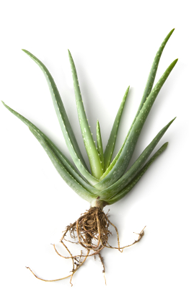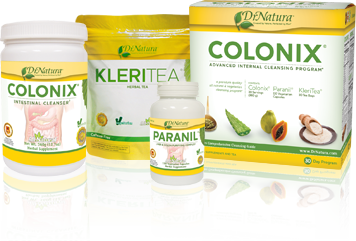Colon Cleansers - What to Look for in a Program
While the concept of cleansing the colon is popular, it isn’t new; natural cleansing processes have been utilized throughout the world for centuries. The tradition continues today, and many different products have arisen to answer the call for a way to cleanse the colon without harsh chemicals or ingredients.
Colon Cleanser Checklist
There are some products out there, however, that are thinly veiled, low-quality attempts to cash in on a potential market. You can protect yourself, your well-being, and your wallet by knowing what makes for a good cleansing program. Here are the components to put on your colon cleansing program “checklist”:
- A Convenient and User-Friendly Program.
Let’s be honest, the more difficult the colon cleansing procedure, the less likely most people are to start it, let alone see it through. Luckily, cleansing is not as difficult as you may think. You shouldn’t have to make trips to and from an expensive facility or specialist, and in general, the program needn’t be uncomfortable or something so complicated that you don’t want to try it again. - Look for a cleansing program that comes pre-assembled and ready-to-use so that you do not have to spend hours searching for all the right components. But be aware and do your research: never sacrifice quality for convenience. The right colon cleanse program will offer both.
- Natural, “Human-Friendly” Ingredients.
You should only use a cleansing program if it contains 100% natural, non-genetically modified ingredients. After all, you can’t expect to help your body cleanse itself by pouring more potentially-harmful synthetic chemicals into it! - Look for a program that uses herbs (like psyllium, aloe, ginger, and turmeric) that have a long history of therapeutic, cleansing use. Steer clear of anything with ingredients that you can’t pronounce.

Aloe Vera
- Intestinal/Colon Cleansing Support.
Making sure that the bowels are consistently active is vital to health. A compromised colon – caused largely by a poor diet and unhealthy lifestyle – can lead to constipation, bloating, and gas, among other unpleasant results. These common symptoms are more than just an inconvenience – they can lead to more serious health problems. - So, be sure that you find a cleansing program that contains safe, herbal approaches to supporting liver health and blood cleansing. One of the chief ingredients should be milk thistle extract (also called silymarin). There is plenty of research showing the efficacy of milk thistle in supporting the liver. Look for a product that contains a standardized extract to ensure potency.

While it sounds like a large bill to fill, a good cleanser will meet and/or exceed all these suggestions. Because colon cleansing is such an item of interest lately – and with good reason – your options are fairly open.
One of the best cleanses on the market today is DrNatura’s Colonix Program. An advanced internal cleansing program, it uses a three-pronged approach to ensure natural, yet effective, cleansing results:
- an herbal liver support supplement (containing milk thistle extract);
- a premium proprietary blend of soluble and insoluble plant fibers;
- a naturally caffeine-free herbal tea to help support healthy bowel function.
Colonix Program by DrNatura meets all of the requirements for an optimal, all natural cleanse.
1 Stadler, K. (2009). Heart Healthy Eating: Cholesterol, Fat, Fiber, & Sodium. Publications and Resources, Virginia Tech. Retrieved March 16, 2011 from http://pubs.ext.vt.edu/348/348-898/348-898.html
2Behan, E. (2006). Therapeutic nutrition: A guide to patient education. NY: Lippincott, Williams & Wilkins.
3 Barve, A., Khan, R., Marsano, L., Ravindra, K.V., & McClain, C. (2008). Treatment of alcoholic liver disease. Ann Hepatol, 7(1):5-15.
4 Arteel, G., Marsano, L., Mendez, C., Bentley, F., & McClain, C.J. (2003). Advances in alcoholic liver disease. Best Pract Res Clin Gastroenterol, 17(4):625-47.
5 Feher, J., & Lengyel, G. (2008). Silymarin in the treatment of chronic liver diseases: Past and future. Orv Hetil, 149(51):2413-8.


